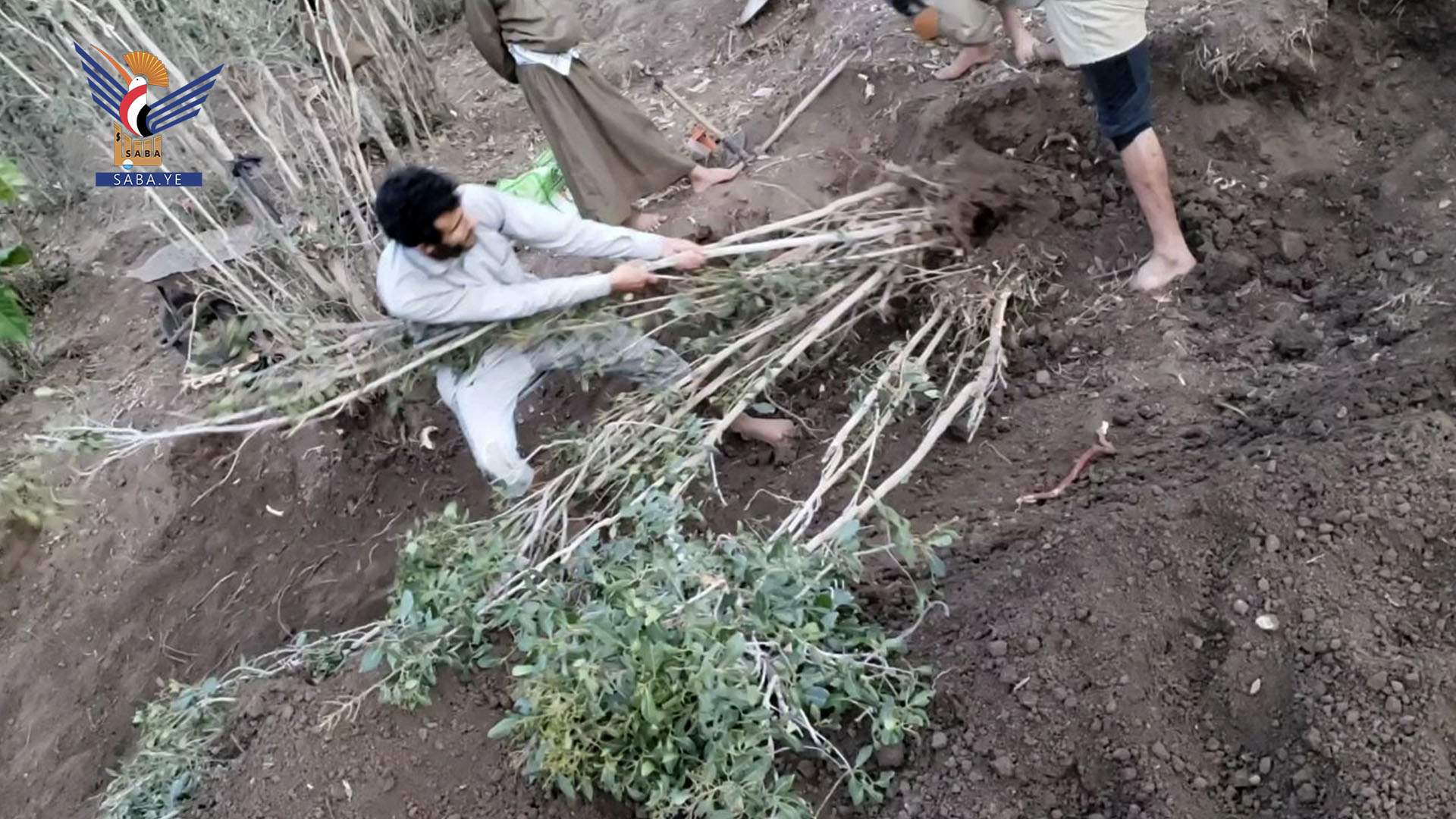Sana’a – SABA:
Sana’a Governorate is witnessing a notable trend toward revitalizing the agricultural sector across its districts.
Indicators confirm the commitment of the Government of Change and Development—represented by relevant authorities and local communities—to launching a revolution in cultivating and producing various cash crops, with coffee taking the lead.
Al-Hayma Al-Dakhiliya District, one of the well-known agricultural districts in Sana’a Governorate, is recognized for cultivating a variety of crops, particularly coffee. Expansion of this essential cash crop is underway, as it provides a primary source of income for many families—despite the challenges farmers face.
As awareness grows among farmers in the district about the benefits of cultivating high-return cash crops, many have begun replacing qat with coffee and almonds, especially in cooler areas ideal for almonds and moderate-climate areas suitable for various coffee types.
Joint Efforts
Achieving success in the agricultural sector is a collective goal, backed by concrete steps. This is evident through the attention given by local authorities, who are working to channel available resources in the right direction.
Sana’a Governorate Governor Abdulbasit Al-Hadi emphasized the importance of revitalizing the agricultural sector—both crops and livestock—as part of directives from the Revolution Leader Sayyed Abdulmalik Badr al-Din al-Houthi and the Head of the Supreme Political Council, Field Marshal Mahdi al-Mashat. These efforts align with the Government of Change and Development’s plans for self-sufficiency and sustainable growth.
Al-Hadi pointed to the support provided by local authorities through multi-purpose agricultural cooperative associations spread throughout the governorate’s districts and sub-districts, aiming to drive local development with agriculture at the forefront.
He also called on young people, especially in rural areas, to harness their potential and creativity to help achieve a national renaissance across all sectors.
Al-Hayma Al-Dakhiliya as a Model
Farmers from Hijrat Al-Ain village in Bani Al-Siyagh sub-district of Al-Hayma Al-Dakhiliya recently undertook a pilot initiative by uprooting some qat trees and replacing them with coffee trees, turning their fields into a mix of both crops.
After a period of patience and care, locals have reached the conclusion—through a clear comparison—that coffee is the true treasure worth focusing on. Many are now seriously considering completely removing qat in favor of coffee.
Expanding the Initiative
The first to fully replace qat with coffee was farmer Abdullah Qadhi Al-Siyaghi, who removed qat from his field of over 25 libnah (a local land measurement unit). He began rehabilitating the land by uprooting qat, which had long dominated the field and stifled the cultivation of more valuable and essential food crops.
Al-Siyaghi and his relatives confirmed that the state’s current focus on boosting domestic production to reduce import dependency is one of the main motivators behind the shift to coffee farming.
They urged relevant authorities to support this transition by providing coffee seedlings, promoting intercropping practices, and establishing reliable water sources through building dams and reservoirs to capture rainwater and spring flows—key for expanding coffee cultivation.
Pest Threats and Farmer Resilience
Hashim Al-Shami, head of the Bani Al-Siyagh Development Association, explained that their area has a long tradition of cultivating coffee and almonds. However, pest infestations now threaten both crops, reducing annual yields and turning once-productive trees into firewood. This situation had previously pushed farmers toward growing qat, which is more resistant to pests and harsh weather.
Al-Shami stressed the importance of supporting farmers who are voluntarily replacing qat with coffee and almonds by ensuring water access through dam and barrier construction. He called for immediate intervention from the relevant authorities to provide both pest control solutions and financial support for rainwater harvesting infrastructure.
He also considered the farmers’ willingness to uproot qat and plant coffee instead as proof of growing local awareness—an outcome he attributed to the developmental momentum sparked by the September 21st Revolution.
Outlook
Despite ongoing challenges from war and blockade, farmers remain hopeful about developing coffee cultivation, improving yields, and expanding marketing opportunities. They are calling for further support to broaden the cultivation of this crucial cash crop, which could benefit individual farmers and contribute to national economic resilience.

| more of (Reports) |




